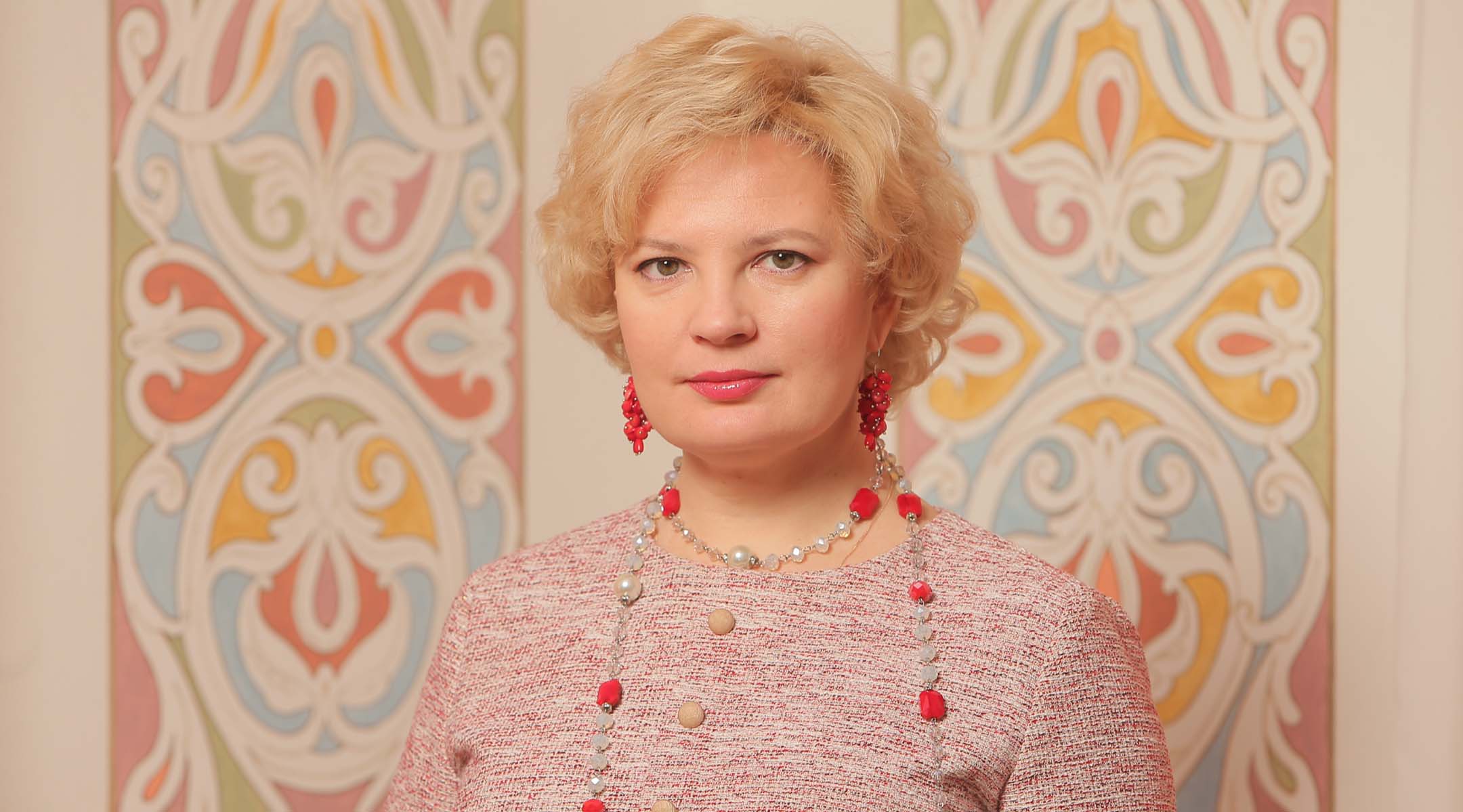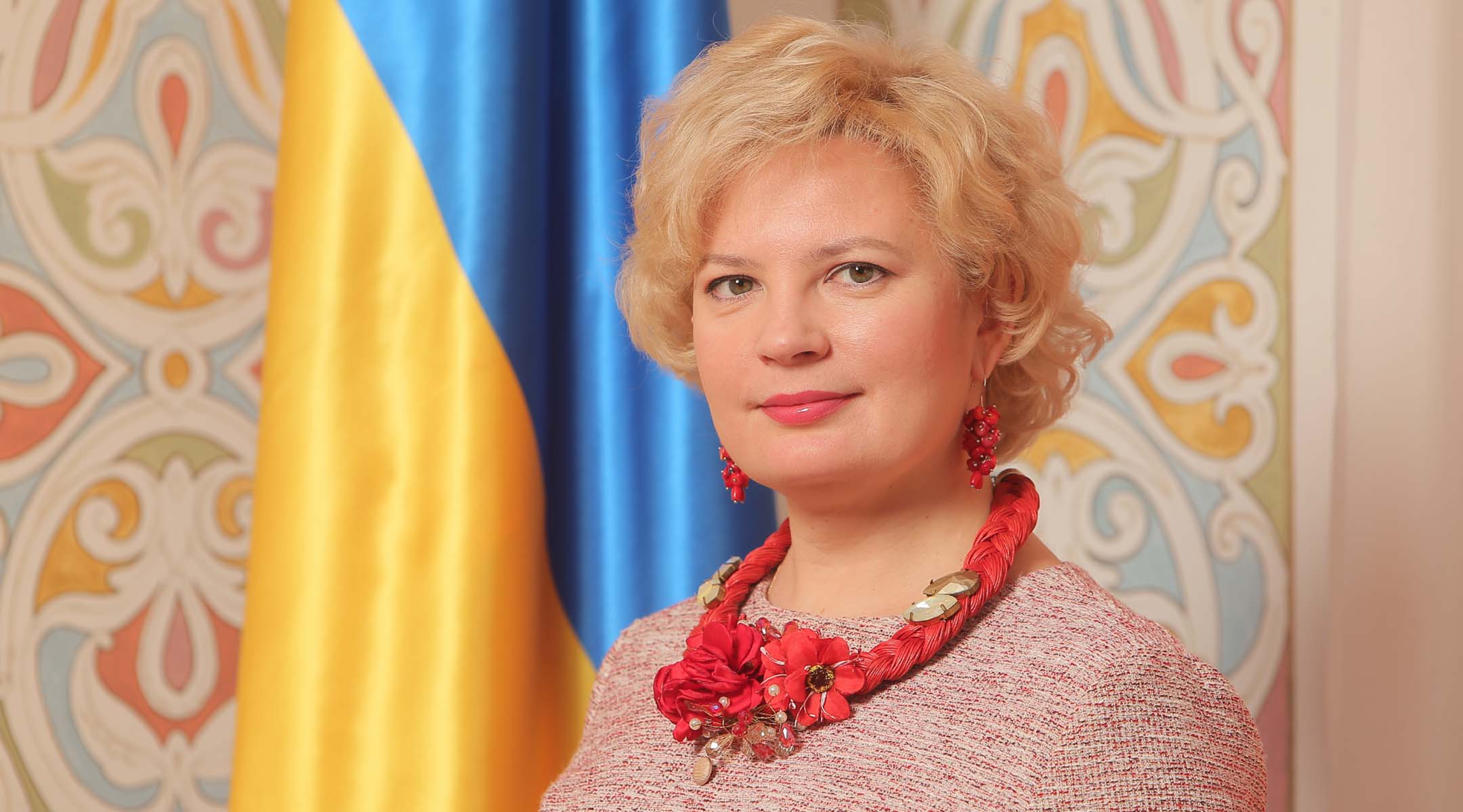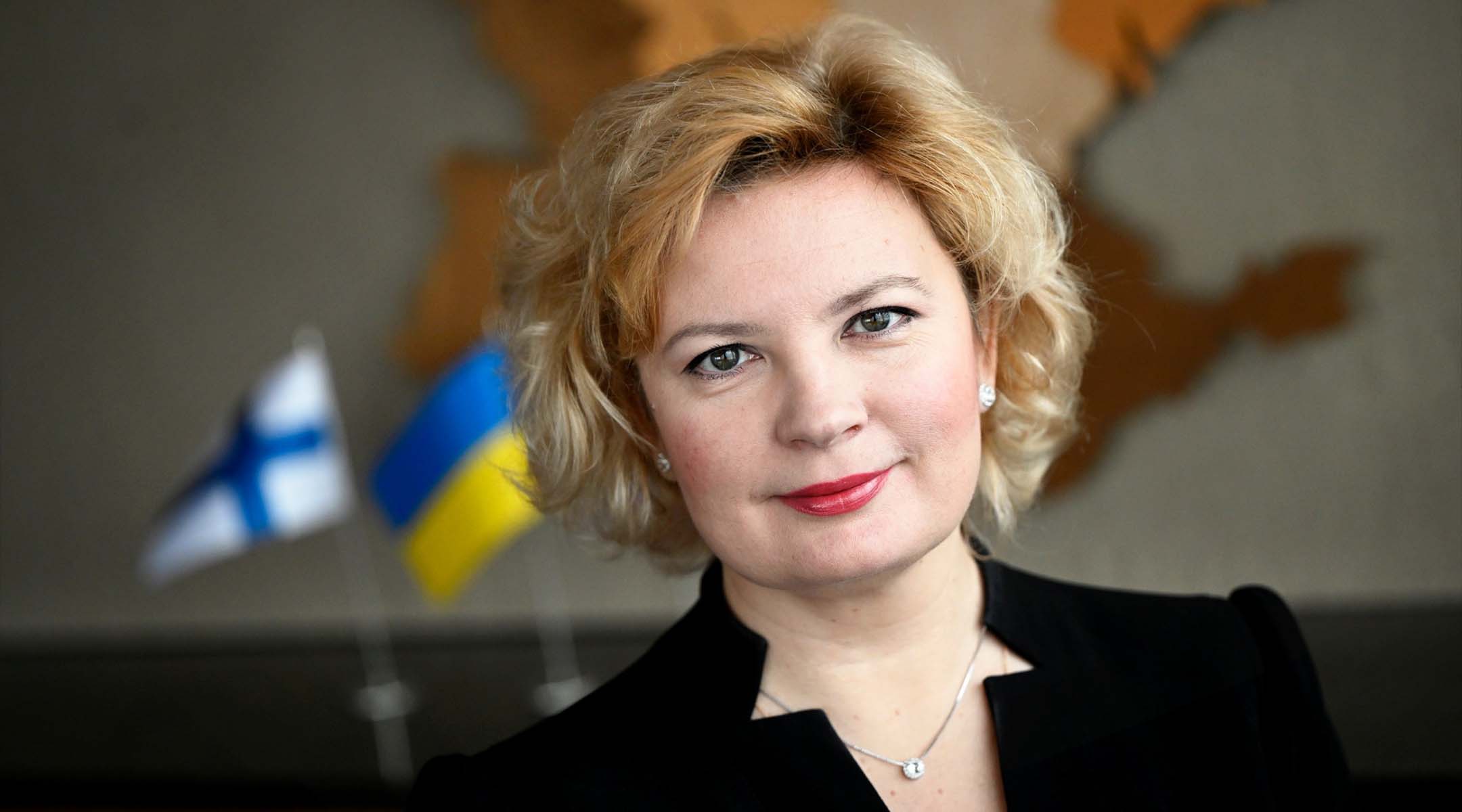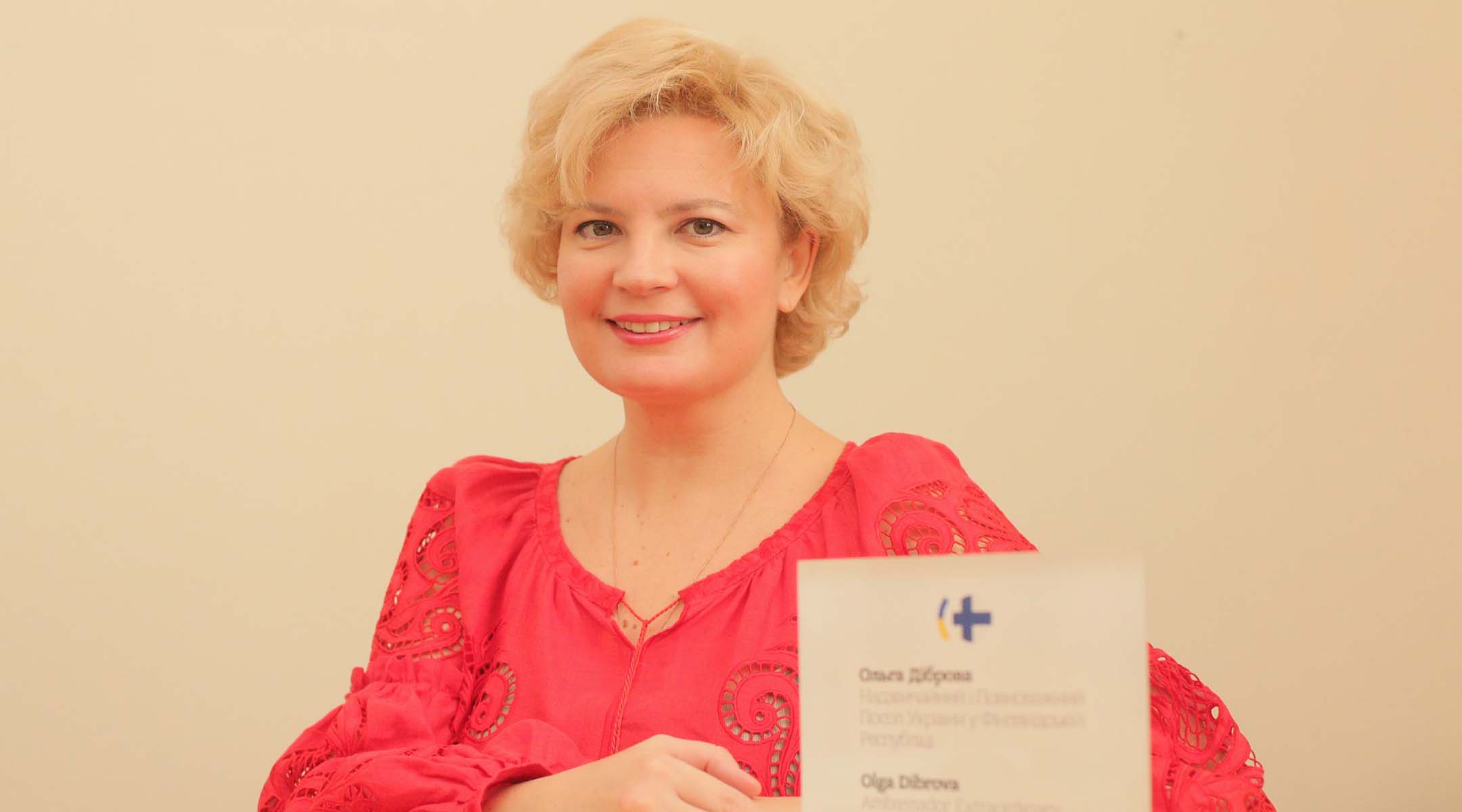The political turbulence in European countries associated with elections at various levels has its own peculiarities that are important for Ukraine. The formation of the most right-wing government in the country since World War II after last year's parliamentary elections and the election of Alexander Stubb as president after two six-year terms of his predecessor, Sauli Niinistö, did not affect the unequivocal support of Ukraine by Finnish politicians and society.
Ambassador of Ukraine to Finland Olga Dibrova is convinced that this will continue to be the case. In an interview with Ukrinform, she spoke about the Finns' attitude to their own security after joining NATO, their reaction to threats from Russia, patriotic education in Finland, and why Finns watch her facial expressions during public speeches.
FINLAND HAS NOT STOPPED BUILDING BOMB SHELTERS SINCE THE 1940S
- Ambassador, Finland applied for and became a member of NATO during your diplomatic tenure. Have you noticed any changes or weakening in the country's attitude to security issues since joining the Alliance?
- Let me start by saying that Finland is indeed a special country in Europe and a very valuable partner of Ukraine both in the EU and now in NATO.
Why is it special? Because this country has been consistently strengthening its defense capabilities and preparing for crises for decades. This resulted in the creation of one of the world's best civil defense systems.
First of all, it is an extensive system of bomb shelters - currently, the country has built 50,000 bomb shelters for 4.8 million people. This is despite the fact that Finland's population is 5.5 million.
91% of these structures are capable of protecting against an attack by conventional weapons, and 83% are designed for a nuclear incident.
I have visited these bomb shelters many times as part of various events - it is really something fantastic! They are ready for use at any time. In peacetime, they are usually used as sports facilities or for other social purposes.
- When and why did they start building them?
- Finns continued and significantly developed the construction of bomb shelters after World War II.
We all know about the events in Finland in 1939-the Winter War, the Soviet attack. The historical parallels with Ukraine are striking - back then, people also fled Karelia in what they had on and sent their children to Sweden with name tags and contacts, trying to save them.
The memory of this is deeply rooted in the Finnish mentality. Their reaction to Russia's full-scale invasion of Ukraine is connected to what they themselves experienced in 1939.
That is why Finland has not stopped building bomb shelters since the 1940s.
But this is only one element of the Finnish attitude to defense.
Despite the fact that Finland, unlike many other countries, had, so to speak, balanced relations with Russia after the Cold War, it systematically built up its defense capabilities, formed regional alliances, and actively purchased modern weapons.
Therefore, Finland's accession to NATO was in fact a logical continuation of the systematic strengthening of defense capabilities and readiness for any development.

- In Ukraine, joining NATO is perceived as an opportunity to hide under a collective security umbrella. Is this the same attitude in Finland? What have the Finns "delegated" to the NATO level?
- In the state in which Finland joined the Alliance, it has actually strengthened NATO's collective defense system.
I will cite just two indicators: in the event of a war, the country is ready to immediately deploy a contingent of 280,000 troops. In total, Finland has 870,000 reservists.
The motivation of the Finns is very high - you probably know that the level of readiness of the Finns to defend their country with arms is the highest compared to other countries, and after Russia's full-scale invasion of Ukraine, this readiness has only increased.
The government, military, and citizens of Finland clearly understand the nature and scale of the threats - let's not forget that this country shares more than 1,300 kilometers of border with Russia - and they maintain high combat readiness.
During the NATO accession campaign, Finland emphasized that it would become a contributor to regional and international security.
And after joining, Finland has not slowed down in strengthening its own defense capabilities - its defense spending exceeds 2% of GDP.
In other words, the Finns see their own defense capability as the foundation on which the entire subsequent hierarchy is built.
By the way, after joining NATO, Finland conducted a survey by the National Defense Information Planning Board, which showed that nine out of ten Finns are ready to fulfill the joint defense obligations under Article 5 of the Washington Treaty.
FINNS' RESPONSE TO ANY THREATS FROM RUSSIA IS EVEN MORE UNITED AND READY TO COUNTER THEM
- After Finland joined NATO, Putin said that there had been "no problems in relations between the countries before, but now there will be" because Russia is creating the Leningrad Military District and will concentrate military units there. What problems are Finland preparing for with Russia?
- Our Finnish friends are very pragmatic and balanced, so the reaction to any threats from Russia is even greater internal cohesion and readiness to counter them.
A striking example that demonstrates Finland's readiness to respond to hybrid threats is the decision to completely close the border with the Russian Federation in response to its attempt to organize an artificial migration crisis.
I observe systematic work in Finland to counter possible threats in all areas - from strengthening cyber resilience to protecting critical infrastructure and increasing the number of military exercises with NATO partners.
- Last August, President of Ukraine Volodymyr Zelensky invited Finland to start negotiations on a bilateral document on security guarantees for Ukraine. Are you aware of any preparations by the Finnish side to sign such an agreement?
- I would like to emphasize that Finland has proved to be one of Ukraine's most reliable partners since the first days of the full-scale invasion by its concrete actions.
To illustrate the consistency and long-term nature of security assistance, I would like to remind you that last May the new Finnish government developed a program for 2023-2027, which clearly states that Ukraine is the main recipient of Finland's comprehensive assistance.
I would like to make a small remark here that the Finns are people of their word, and for their society and politics, honesty and trust are the cornerstones, and if they promise something, they will definitely fulfill it.
Along with this, the government program also outlines Finland's active role in strengthening Russia's economic isolation, holding it accountable for the crimes and destruction committed in Ukraine, including in the form of directing frozen Russian assets to rebuild Ukraine.
As of March 2024, the 23rd defense assistance package is already being prepared.
At the end of last year, the Finnish government approved a decision to make long-term investments in ammunition production, primarily in view of Ukraine's significant needs.
Finland is also one of the active partners in the implementation of President Zelensky's Peace Formula, in particular its eighth point on assessing and addressing environmental damage.
As for today's realities, as you know, on March 1, the new President of Finland was inaugurated. In his speech at the ceremony, Alexander Stubb clearly stated that Ukraine is fighting for all those who believe in liberal democracy, and that partners should stand by Ukraine and continue to help it as long as it needs.
The new president's team has just started working this week. However, I can already assure you that we are closely coordinating with the Finnish side on the vision of the next steps, and in the near future there will be concrete outlines of our intensive joint work.

FINLAND - A VERY POWERFUL VOICE, UKRAINE'S ADVOCATE IN THE EU AND NATO
- In Ukraine, Finland's statement that it does not prohibit Ukraine from attacking Russian military targets with the weapons it has provided was very welcome. Since Finland does not disclose what weapons it has provided to Ukraine, should we take this statement as a hint of certain deliveries or as an attempt to influence the position of other NATO countries?
- This statement once again confirms that Finland is one of Ukraine's most consistent partners. At the same time, this country clearly understands the price of freedom and the critical importance of Ukraine's victory.
Finland is a very powerful voice and advocate for Ukraine in both the EU and NATO.
I was invited to the special hearings organized for the second time in the Finnish parliament on the occasion of the second year of Russia's full-scale invasion, and it was touching, impressive and inspiring to see the entire political spectrum, regardless of party affiliation to the government coalition, demonstrate absolute cohesion and strong support for Ukraine.
I think the answer to your question is the unanimous statement of the Finnish parliament that the West should immediately provide Ukraine with everything it needs to win.
The level of support for Ukraine in Finland is one of the highest in Europe, and this figure has not changed. And I think it will not change in the future, because Finland understands that Ukraine must win, why it must win, and acts accordingly.
RUSSIA'S PROPAGANDA "TALENTS" ARE VERY LIMITED IN FINLAND
- Finland has developed and is using the concept of total defense, which involves preparing a large part of the population for war, mobilizing all resources and preparing civilian infrastructure for possible use during the war. What do you think Ukraine should borrow from the Finnish concept of total defense right now?
- What you call total defense has a clearly defined term - it is a world-famous, unique Finnish model of comprehensive security of society.
It defines the place and role of literally everyone, from the government and the armed forces to the private sector, communities and individual citizens, in maintaining the resilience and security.
I think this is very important, and this is exactly what Ukrainian society needs - an understanding that security is the responsibility not only of institutions but also of every citizen.
Let me give you an example. After arriving in Finland, at one of my first meetings, which was not about the security system but about a different topic, I met a woman who is responsible for a bomb shelter in her neighborhood. And there are people like that in every neighborhood-everyone knows where to go, who has the key, and when the shelter should be opened.
So it's a clear system at the micro level, and it applies not only to bomb shelters, but also, for example, to the issue of media literacy.
We see that in Finland, Russia's propaganda "talents" are actually very limited, because Finns are taught to think critically from school age. They know how to evaluate media resources, compare them with others, analyze them, and draw their own conclusions about what is true, propaganda, or fake.
It seems to me that we should also adopt this analytical and critical approach.

- According to investigations by the Finnish media, Finnish rifles and millions of rounds of ammunition were transferred to Russia in 2022-2023. In addition, components and equipment that are further used in the defense industry are still being transferred from Finland to Russia through small companies. What is the official reaction of the Finnish authorities to these investigations?
- I have already mentioned that Finland is one of Ukraine's most active partners in strengthening sanctions against Russia and ensuring their effectiveness.
The emergence of such investigations leads to an immediate response from the relevant government agencies. To give you an idea of the amount of work done by the Finnish side, I will give you some figures.
As of February 2024, two years into the war, Finnish customs has identified 29,000 violations in the transportation of sanctioned goods, conducted 2,800 inspections and 740 preliminary investigations.
The Finnish media also often conduct their own investigations, and we learn a lot from them.
But the situation is such that Finnish goods often enter Russia through third countries.
We really appreciate the explanatory work that the Finnish government is doing to make it impossible to circumvent sanctions and warn companies about possible dangers, because the position of business here is virtually unanimous - they have completed their activities in Russia and absolutely do not want to finance it.
I would also like to emphasize the good cooperation between the government, law enforcement agencies, the private sector, the media and citizens in complying with the sanctions - it is a truly effective chain of action.
THERE IS DEFINITELY NO IMPOSITION OF PATRIOTISM IN FINLAND
- Before the Great War, Ukraine had long studied the Finnish education system, which is known for its high quality. How is patriotic education organized in Finland? Whose responsibility does it belong to - the family or the school?
- There is no separate subject called "Patriotic Education" in Finnish schools. They study the history of Finland, which includes the formation of statehood, familiarization with Finnish culture and traditions.
But there is an element that seems to me very important in terms of fostering patriotism: the existence of conscript military service in Finland for a period of six months for men over 18. Women can do it if they wish.
Compulsory military service in Finland is honorable and popular.
Let me give you one example. During the inauguration of the new president on March 1, I had the opportunity to talk to Alexander Stubb, and he just mentioned that his son was absent from the ceremony because he is currently doing his military service.
In Finland, there are many different unions organized to defend the country back in the 30s and 40s, which have their own history and traditions. But there is definitely no imposition of patriotism here.

- Last summer you said in an interview that most Ukrainian refugees want to return to their homeland. What is their mood now?
- The situation in Finland is very dynamic. In fact, many of our compatriots have already returned, but others are arriving - there are now more than 66,000 Ukrainians in Finland.
The majority of those I talk to would really like to return, so our embassy is committed to helping the Ukrainian state create the conditions for their return.
Despite the fact that the vast majority of Ukrainian children attend Finnish schools, they continue to study remotely in Ukrainian schools.
Finns like to plan, so to build a predictive model, the Finnish side recently conducted a survey of Ukrainian citizens living in Finland about their living conditions and planned duration of stay in the country. The results are still unknown, but they are expected to be published within a month.
I SEE A GREAT DESIRE OF UKRAINIANS TO LEARN THE BEST FROM THE FINNS
- You initiated the establishment of sister-city relations between Ukrainian and Finnish cities. How many such partnerships have emerged during the war?
- Finnish municipalities have been very active in supporting and providing assistance to Ukraine. Therefore, having felt this trend, I tried to find specific partners for them.
By February 2022, only five twinning agreements had been signed between the cities of Ukraine and Finland. As of now, we already have 16 sister cities, meaning that 11 new agreements have been signed and a number of others are under development.
We now receive many requests from both Finnish and Ukrainian cities, because this cooperation is very important and effective.
- Has it already yielded any practical results?
- Yes, and in different areas. We are guiding Finnish cities to become guides for Ukrainian cities on their way to the EU. The Finns have a lot of experience in this. In particular, we are talking about developing joint projects to be funded by the EU.
Finnish cities send a lot of targeted humanitarian aid to their twin cities, including ambulances, various vehicles, hospital equipment, and energy equipment. In addition, the Finnish side organizes summer camps for Ukrainian children, and they are already planned for this summer, as well as cultural exchanges.
On our advice, Finnish cities have also started to organize seminars on Finland's best practices that can be used in rebuilding Ukraine.
- Are Ukrainian cities interested in this experience or are they more interested in Finnish humanitarian aid?
- In fact, I see a great desire among Ukrainians to learn the best from the Finns.
Ukrainian municipalities are very interested in water purification, in which Finland has the best practices, in moving towards the EU, decentralization and the functioning of the local government system, fighting corruption, and green transition.
This is a very wide range of issues, and it is definitely not just about receiving humanitarian aid.
I am impressed with Ukrainian city halls and communities - they have such a keen interest and desire to improve our country that I am proud to be from Ukraine.
FINNISH SISU AND UKRAINIANS' LOVE OF FREEDOM ARE VIRTUALLY SYNONYMOUS
- Recently, the Ministry of Foreign Affairs created a webpage about military diplomacy, where it described the achievements of these two years. What results would you list there?
- I would suggest talking about the achievements after the victory, because our results are the joint work of many - from the Head of State to each individual diplomat.
I will only say that we managed to create a comprehensive system of assistance to Ukraine in Finland. We have a very extensive network of contacts among official representatives, and this system includes virtually everyone - business, municipalities, universities, various associations and unions, and individual volunteer initiatives.
We try to be everywhere, to inspire and thank everyone, and it really works.
- Among the traits that diplomats need in times of war, the Foreign Ministry has put stubbornness at the top of the list. Did you need it while working in Finland?
- I will name the traits that are most valued in Finland and that are close to me personally: honesty, decency and modesty.
- One of the symbolic words of Finland and the Finnish life principle is called sisu, which is a combination of endurance, perseverance in achieving a goal, resilience and stamina. At first glance, these qualities seem to be being demonstrated by Ukrainians as well. Do you see anything in common between Finns and Ukrainians?
- I think I have already coined the term "Ukrainian sisu" in Finland. I use it a lot and it always gets applause because Finnish sisu and Ukrainians' love of freedom are actually synonymous.
Sisu is a certain perseverance, but it is value-based and does not imply achieving the goal at any cost.
This is a truly value-based approach that is common to both Finns and Ukrainians.
I would also say that we share a common trait of indomitability.
My public speeches, and there are many of them, often take place after the terrible nighttime Russian missile attacks on Ukraine. And I notice how their organizers and participants even watch my facial expressions. They say that it is important for them to see how I feel inside, whether I have this resilience.
Of course, sometimes it's hard, but I always try to convey to the Finns confidence in our victory, energy and steadfastness.
I think I succeed because I am at peace with myself and I really believe in Ukraine's victory and that we are indestructible.
Nadiia Yurchenko, Kyiv
Photos from the personal archive of Olha Dibrova and Jyrki Ojala / Yle
